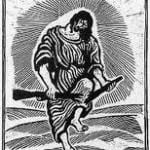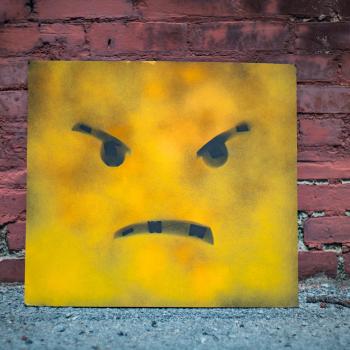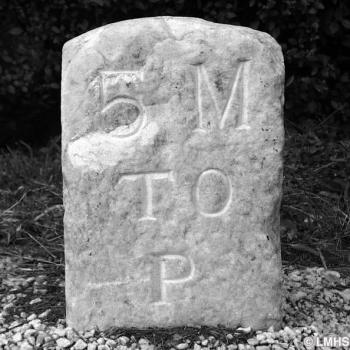Civility is lacking in public discourse. I have said this. Others have said this. Are we giving up on civility? Rants on social media. Abrasive political pundits on cable news. Foul-mouthed and derogatory comments and gestures from a president. All this lack of civility is like a plague. The time for civility to die a quick death has come. Civility, once the guardian of proper and polite interactions, should probably ride off into the sunset, retire, or simply be taken off of life support.
Giving Up on Civility
Several years ago, I read Stephen Carter’s book, Civility: Manners, Morals, and the Etiquette of Democracy, while riding on Amtrak. I think it was that setting that made the book most memorable for me. In case you didn’t know, it was after the railroads were completed in the 19th century, books on politeness and civility began to be published. One thing leads to another. One of the books in the 19th century was Isaac Peebles’, Politeness on Railways. The book states,
“Having observed too great laxity of true politeness on the railroads, the author of this booklet has written it with the hepe of doing something toward correcting this evil; and for whatever is accomplished in this direction through it he will feel grateful to God, and know that it has not been writ.”
And, Peebles provides some specific do’s and dont’s for traveling in a compact space together, on a rail-car in the 19th century:
“Whispering, loud talking, immoderate laughing, and singing should not be indulged by any passenger…Passengers should not gaze at one another in an embarrassing way.”
 And that conductors were to be politeness police of sorts who made sure that passengers would not “indulge personal preferences at the expense of other passengers.” Carter adds:
And that conductors were to be politeness police of sorts who made sure that passengers would not “indulge personal preferences at the expense of other passengers.” Carter adds:
“Well, of course, to travel so far together, packed shoulder to shoulder like chess pieces in their little box, everybody had to behave or the ride would become intolerable. Everyone followed the rules for the sake of their fellow passengers, and they did so…out of a spirit of ‘self-denial and the self-sacrifice on one’s own comfort for another’s. Alone in God’s creation, human beings can make choices, setting aside their own needs and desires for the sake of living in society with others…This captures the two gifts that civility brings….first, it calls on us to sacrifice for others…And second, it makes the ride tolerable (Carter, Civility).”
So far this makes sense. We need to find a way to travel together through this life. But lately, the way we’ve been acting, the conductor would have thrown most of us off the train by now.
Civility Follows Rules
But who makes the rules? When do we get to break the rules? Civility can be minimized to the “correct” rules of socially acceptable behaviors. Those behaviors are those which minimize tension, attempt to create a level-playing field for all parties, and develop dialogue with equity. Yet, all kinds of questions emerge about who does the defining of acceptable behaviors. Whose equilibrium are we seeking to keep stabilized? Is that “stability” based solely on the lack of tension, or the actual presence of justice? 
Civility follows the rules. But when those rules are broken, those of us who may feel violated, need to ask for what purpose? Is the incivility due to the feeling of tension and the perception of threat, or is there tension, or a sense of offense because our sense of norms are being questioned? Martin Luther King, Jr. dealt with this tension in his Letter from Birmingham Jail, written especially to his white clergy colleagues who were critical of the assertive challenges MLK was making to the status quo, and breaking the “rules” of polite and civil behavior. King wrote:
“Nonviolent direct action seeks to create such a crisis and foster such a tension that a community which has constantly refused to negotiate is forced to confront the issue. It seeks so to dramatize the issue that it can no longer be ignored. My citing the creation of tension as part of the work of the nonviolent resister may sound rather shocking. But I must confess that I am not afraid of the word “tension.” I have earnestly opposed violent tension, but there is a type of constructive, nonviolent tension which is necessary for growth.”
MLK is not alone, but stands with many in the biblical tradition who intentionally devised ways of bringing tension to those in power and resistant to justice. Ezekiel 4-5 describes a number of repugnant and confusing actions meant to shock and disturb. Isaiah, due to a request from God offended the sense of civility by walking around naked for three years. Amos criticizing the elite class for their laziness, oppression of the poor, and injustice calling them “fat cows”. Jesus, too, joins in the uncivil prophetic tradition by addressing religious leaders as tombs of rotting flesh, teaching the poor, associating with women, interrupting business in the temple, and with more than a little chutzpah doesn’t bow to either temple priests or Pilate.
Maybe we make too big a deal about civility. Perhaps there is a time, like now, when civility is less of a priority than justice. When kindness and love require an assertive non-violent presence. Michelle Obama is correct, when they go low, we go high. However, going high, doesn’t require politeness as ascribed by the privileged seeking to retain power and forestall disequilibrium. Going high means an ardent commitment to love with the passion of God and seeking justice. The most civil thing we could do and say amounts to “do to others, what you would have them do to you.” And that, will from time to time, require breaking a few rules.












